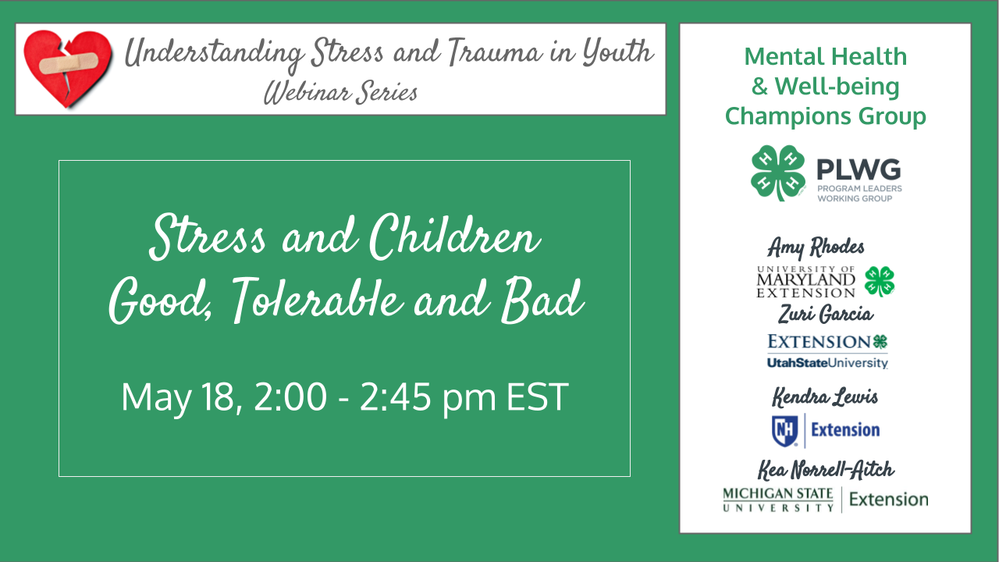This webinar was Recorded for your convenience.
To access the recorded webinars please visit https://forms.gle/Uymkoe9JgAhuZm61A
Learning Topic: Children experience stress throughout their life and often use stress as a tool to develop coping techniques they grow into as adults. With a stronger understanding we as extension professionals and volunteers can learn to identify and acknowledge stress our youth may be experiencing. These stressors may come from home life, school, external activities, or other personal situations. In this webinar you will learn about how stress affects children and how we can aid in reducing stress and building coping skills through 4-H and extension.
Presenter:
Amy Rhodes, arhodes1@umd.edu
University of Maryland Extension
Questions: please contact Amy Rhodes at arhodes1@umd.edu
This series is brought to you by the Mental Health & Well-being Champion Group.
The Mental Health & Well-being Champion Group is part of the 4-H Access, Equity and Belonging Committee, which aims to increase the capacity of 4-H and the Cooperative Extension System to create a more inclusive organizational culture. Our champion group focuses on increasing youth development professionals’ knowledge of mental illness and challenges that youth face in order to help these professionals create safe, inclusive programming for our youth.
Zuri Garcia, Amy Rhodes, Kea Norrell-Aitch, Kendra Lewis
Additional Sessions in the Series


Comments (1)